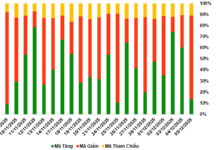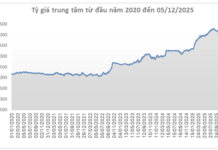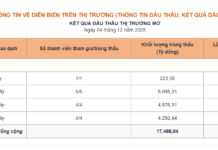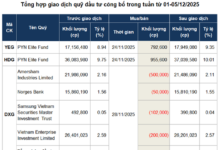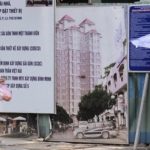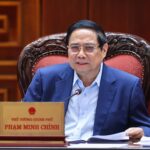“Former Chairman and CEO of Bac Giang Tobacco and Food Joint Stock Company Arrested for State Asset Mismanagement”
On August 19, the People’s Procuracy of Bac Giang province approved the decision to prosecute and arrest Mr. Pham Hong Thuan, former Chairman and CEO of Bac Giang Tobacco and Food JSC, for “Violation of regulations on the management and use of state assets, causing loss and waste” according to Clause 3, Article 219 of the Criminal Code.
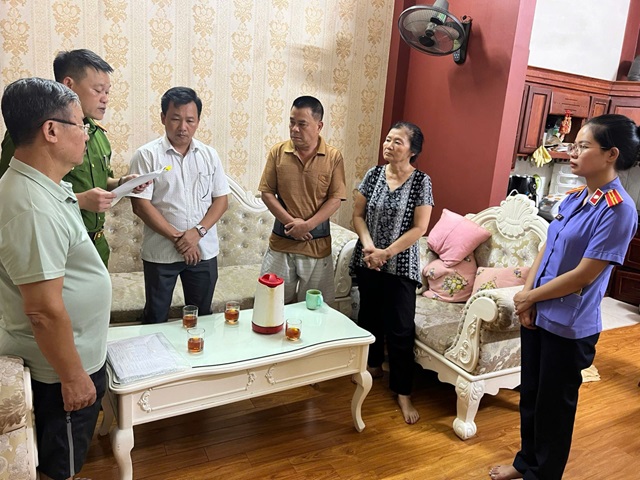 Law enforcement authorities read out the temporary detention order for Mr. Pham Hong Thuan. Photo: Bac Giang Provincial Police
|
The investigation determined that Bac Giang Tobacco and Food JSC is a state-owned enterprise. On June 2, 2008, Mr. Pham Hong Thuan, as Chairman and CEO, received an accounting handover from Mr. Nguyen V., with the state capital valued at over VND 2.1 billion. From that point until 2018, Pham Hong Thuan was in charge of managing the state capital in the company.
Despite knowing that the company’s production and business activities were inefficient and incurring losses for many years, Pham Hong Thuan failed to organize annual general meetings and did not produce financial reports from 2013 to 2018. He also did not report to the People’s Committee of Bac Giang province about the company’s production, business, and use of assets as collateral for bank loans, leading to an inability to repay debts. As of now, the investigating agency has determined that all of the company’s assets and capital have been lost.
After the approval of the prosecution and investigation decisions by the Provincial Procuracy, the Investigation Security Agency of Bac Giang Provincial Police has executed the prosecution decision, arrested and searched the residence of Mr. Pham Hong Thuan, and continues to investigate and expand the case.
The Power Player: Unraveling the Story of the ‘Heart’ of Vietnam’s Electricity Industry and Its Journey to Independence from EVN
Introducing Mr. Nguyen Duc Ninh, the interim CEO of NSMO – the national electricity and market operator. With a wealth of experience in the energy sector, Mr. Ninh steps up from his role as Director of the National Power Dispatch Center (A0) to lead NSMO through an exciting and pivotal time in the industry. A seasoned professional, Mr. Ninh is known for his expertise and fluency in all things energy-related, and his leadership will undoubtedly steer NSMO towards a brighter and more sustainable future.
The Road to Recovery: VIMC’s Pre-Extraordinary General Meeting Success in Eliminating Accumulated Losses of VND 240 Billion, Setting the Stage for State Capital Divestment to 65%
At the 2024 Annual General Meeting of Shareholders, the Vietnam Maritime Corporation (VIMC) announced that it had successfully wiped out accumulated losses of nearly VND 240 billion. At the upcoming Extraordinary General Meeting of Shareholders on July 22nd, VIMC is expected to approve amendments to its business lines and charter, along with other key agenda items.
The Great Saigon Real Estate Heist: $2 Million Lost as Former Executives Face Justice
Despite explicit instructions from the People’s Committee of Ho Chi Minh City, former leaders of the Saigon Real Estate Corporation went ahead with the sale of three prime city-center locations to external parties, resulting in a staggering loss of over VND 45 billion. This unauthorized transaction highlights a blatant disregard for protocol and has led to severe financial consequences for the city.
“Unveiling Misconduct at the Saigon Real Estate Corporation: A Comprehensive Exposé”
The non-auction transfer of land by Resco has resulted in significant financial losses for the state, amounting to over VND 45 billion. This raises serious concerns about the management and transparency of land allocation practices, highlighting the need for stricter regulations and accountability measures to prevent such incidents in the future.


